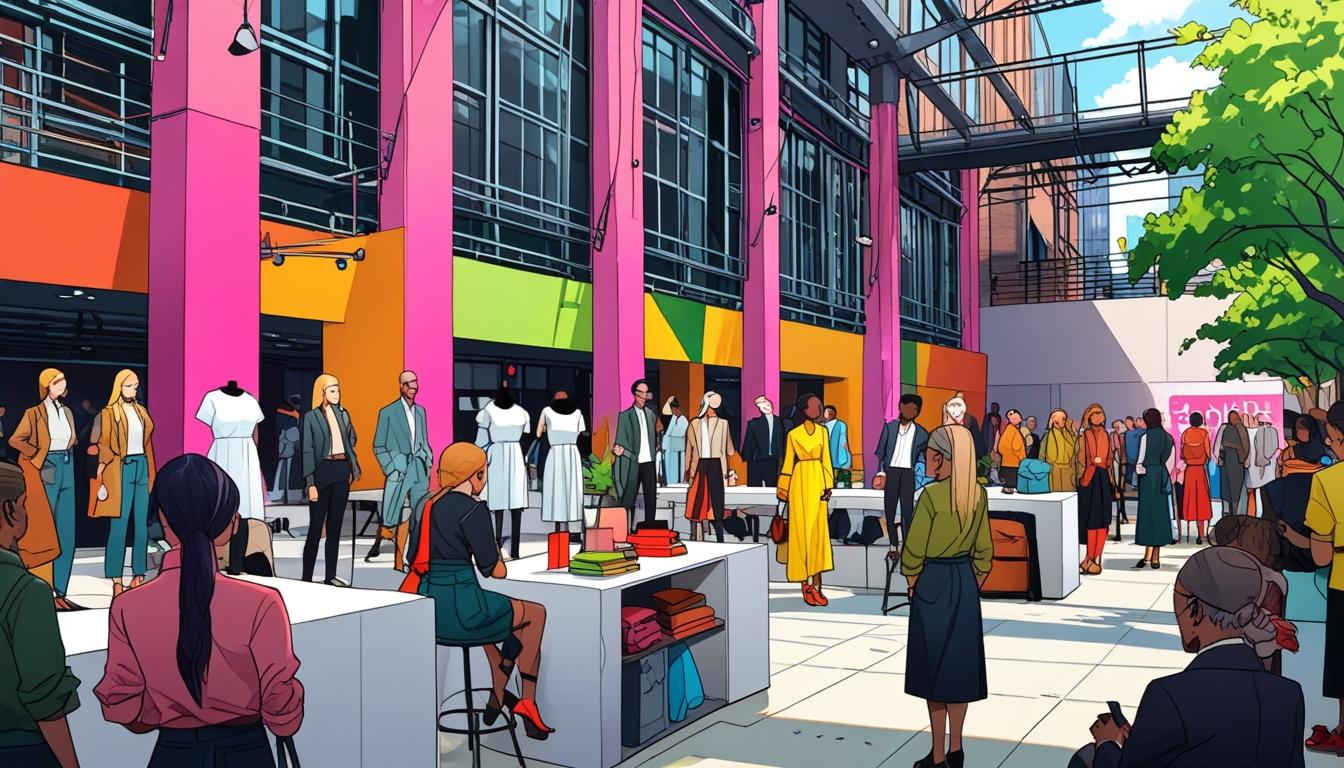TheIndustry.fashion LIVE event brought together industry leaders to discuss the future of retail, highlighting compliance, sustainability, and the importance of mobile technology.
As the fashion industry transitions into the new financial year, it faces various challenges such as increased costs, subdued consumer demand, and waning consumer confidence. However, the sector is known for its resilience and ability to innovate. This sentiment was echoed during TheIndustry.fashion LIVE event, titled “Opportunities and efficiencies for 2025 and beyond,” where several brands and retailers came together to discuss pathways for growth and operational efficiency in the upcoming years.
The event, hosted in collaboration with supply chain experts Bleckmann and sponsored by mobile app specialists POQ, attracted industry professionals eager to learn from notable speakers from brands like Boden, Schuh, Albaray, Florere, and Charles Russell Speechlys. Attendees gained insights into the evolving retail landscape, growth opportunities, and the significance of mobile applications in the current market.
The conference commenced with a presentation by Ilona Bateson, an Associate at law firm Charles Russell Speechlys, who outlined key themes expected to shape retail in 2025. Bateson highlighted several compliance targets that retailers need to focus on to build consumer trust amidst challenging economic conditions.
Bateson stated that retailers need to develop an “effective and compliant AI strategy.” While artificial intelligence has rapidly been adopted in the retail sector for personalized advertising, there’s a pressing need for retailers to periodically review AI-generated content. She noted, “Retailers must regularly review AI-generated content, especially when it comes to selling clothes and creating body images. For example, some AI images could be considered ‘too good to be true’ and considered false advertising.”
Furthermore, Bateson discussed the importance of staying ahead of the compliance curve, urging retailers to continuously evaluate their corporate governance measures in view of new legislation affecting product design, supply chains, and overall operations. She warned that the regulatory atmosphere is becoming increasingly complex, particularly with the introduction of consumer laws that could lead to hefty fines for misleading advertising practices.
The second session featured Erik Janssen Steenberg from Bleckmann, along with Michelle Evatt and Heidi Fielding of Florere and Paula Stewart, Kirstie Di Stazio, and Karen Peacock of Albaray. These industry leaders shared their experiences launching and scaling businesses in a turbulent economic environment.
Following the pandemic, which resulted in the collapse of the Warehouse brand, the co-founders of Albaray established their womenswear label in 2021, focusing on sustainably-sourced garments. Meanwhile, Florere, launched in 2023, has quickly gained recognition for its vibrant designs. Karen Peacock remarked, “You have to gain new skills very quickly… so we needed to learn how to run things like social media, logistics, photoshoots – all the other parts of the business.”
Steenberg emphasized how Bleckmann supports growing brands by providing logistics solutions tailored to their needs, thereby allowing companies to focus on their core business operations. He stated, “We strive to be a trusted partner for brands, propelling them towards growth and helping them to understand each environment/market.”
In another discussion segment, Andrew Gale, Chief Operating Officer at Blakeley Clothing, recounted his partnership with Bleckmann, which has facilitated remarkable growth for the brand, scaling sales from £5 million in 2018 to £60 million this year. “We’re committed to the EU and our link up with Bleckmann was a fantastic opportunity, helping us to push growth further,” Gale explained.
The event also highlighted the significant potential of mobile applications in retail. Helen Slaven, Chief Revenue Officer at POQ, reported that shopping apps are the fastest-growing category, experiencing a 54% year-on-year increase. According to her, 60% of consumers prefer these platforms due to their enhanced shopping experiences. Slaven noted, “Apps build stronger brands and sell more products while deepening customer loyalty and increasing customer lifetime value.”
In summary, TheIndustry.fashion LIVE event shed light on pressing challenges and opportunities facing the fashion sector as it prepares for 2025 and beyond. Industry experts shared actionable insights, specifically focusing on compliance, sustainability, and leveraging technology, particularly mobile applications, to enhance customer engagement and drive growth.
Source: Noah Wire Services




